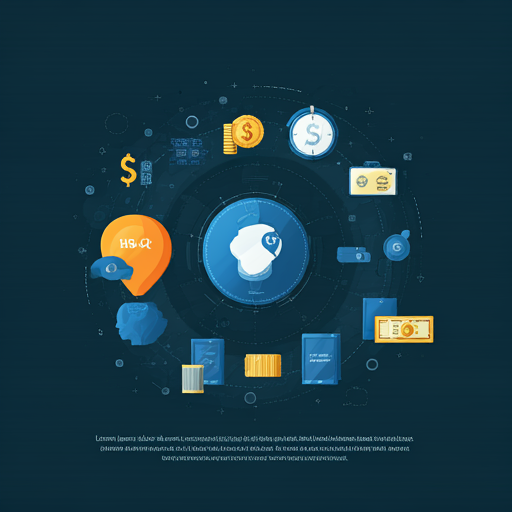Introduction to Fintech Innovations
Defining Fintech and Its Importance
Fintech, or financial technology, encompasses innovative solutions that enhance financial services. It integrates technology into offerings, improving efficiency and accessibility. This transformation is crucial as it democratizes financial services, allowing broader access to banking. Many people can now manage their finances easily. Moreover, fintech fosters competition, driving traditional banks to innovate. Isn’t it exciting to see such rapid change? Ultimately, fintech is reshaping how we interact with money. It’s a game changer for consumers and businesses alike.
Overview of Current Trends in Fintech
Current trends in fintech include the rise of digital banking, blockchain applications, and AI-driven analytics. These innovations streamline operations and enhance customer experiences. For instance, digital banks offer lower fees and faster transactions. Many users prefer this convenience. Additionally, blockchain ensures secure, transparent trznsactions. Trust is essential in finance. AI analytics provide personalized financial advice, improving decision-making. Tailored solutions are increasingly valuable.
The Role of Blockchain Technology
Understanding Blockchain Basics
Blockchain technology is a decentralized ledger system that records transactions securely. It enhances transparency and reduces fraud risks. Each block contains a cryptographic hash of the previous block. This ensures data integrity. Many industries are adopting blockchain for its efficiency. It’s a revolutionary approach to data management.
Blockchain’s Impact on Financial Transactions
Blockchain significantly enhances financial transactions by providing security, speed, and transparency. It eliminates intermediaries, reducing costs. This efficiency is important for businesses . Additionally, blockchain enables real-time settlement of transactions. Instant processing is a major advantage. Furthermore, it enhances traceability, which is vital for compliance.
Cryptocurrencies and Their Influence
How Cryptocurrencies Are Reshaping Banking
Cryptocurrencies are fundamentally altering the banking landscape by introducing decentralized finance (DeFi) solutions. These innovations allow users to bypass traditional banking systems. Many people appreciate this flexibility. Additionally, cryptocurrencies facilitate cross-border transactions with lower fees. Cost efficiency is a significant benefit. Furthermore, they promote financial inclusion for unbanked populations. Access to finance is crucial for growth.
The Rise of Decentralized Finance (DeFi)
The rise of decentralized finance (DeFi) is transforming traditional financial systems. He observes that DeFi platforms enable peer-to-peer transactions without intermediaries. This reduces costs significantly. Moreover, he notes that users can access a variety of financial services, including lending and trading. Flexibility is a key advantage. Additionally, DeFi promotes transparency through smart contracts.
Artificial Intelligence in Banking
AI Applications in Financial Services
AI applications in financial services are revolutionizing banking operations. He recognizes that machine learning algorithms analyze vast datasets to identify trends. This enhances decision-making processes. Additionally, AI-driven chatbots provide customer support, improving service efficiency. Quick responses are highly valued. Furthermore, AI helps in fraud detection by monitoring transactions in real-time. Security is a top priority.
Enhancing Customer Experience with AI
Enhancing customer experience with AI is becoming essential in banking. He notes that personalized services are now possible through data analysis. This approach increases customer satisfaction. Additionally, AI algorithms can predict customer needs based on behavior patterns. Anticipating needs is a significant advantage. Furthermore, AI-driven platforms streamline account management and transaction prosesses. Efficiency is crucial for modern banking.
Regulatory Challenges and Opportunities
Navigating the Regulatory Landscape
Navigating the regulatory landscape presents both challenges and opportunities for financial institutions. He observes that compliance with evolving regulations can be complex and costly. This often strains resources. Additionally, regulatory uncertainty can hinder innovation and growth. Many firms struggle with this issue. However, proactive engagement with regulators can foster collaboration. Building relationships is essential for success.
Future of Regulation in Fintech
The future of regulation in fintech will likely focus on balancing innovation and consumer protection. He believes that adaptive regulatory frameworks are essential for fostering growth. Flexibility is crucial in a fast-paced environment. Additionally, collaboration between regulators and fintech firms can enhance compliance. Working together is beneficial for all parties. As technology evolves, regulations must also adapt. Change is inevitable in this sector.
Digital Payment Solutions
Emergence of Contactless Payments
The emergence of contactless payments has revolutionized digital payment solutions. He notes that these transactions enhance convenience and speed for consumers. Quick payments are highly desirable. Additionally, contactless technology reduces physical contact, promoting hygiene. This is especially important today. Furthermore, the integration of mobile wallets has expanded payment options. Flexibility is key for modern consumers.
Mobile Wallets and Their Adoption
Mobile wallets are gaining traction as a preferred digital payment solution. He observes that their convenience allows users to store multiple payment methods securely. Security is a major concern. Additionally, mobile wallets facilitate quick transactions, enhancing the overall shopping experience. Speed is essential in today’s market. Furthermore, their integration with loyalty programs encourages consumer adoption. Incentives drive usage significantly.
Cybersecurity in Fintech
Understanding Cyber Threats in Banking
Understanding cyber threats in banking is crucial for protecting sensitive information. Cyberattacks can lead to significant financial losses and reputational damage. Additionally, phishing schemes and ransomware attacks are increasingly common. Awareness is essential for prevention. Furthermore, implementing robust cybersecurity measures can mitigate risks effectively. Proactive strategies are necessary for safety.
Best Practices for Securing Financial Data
Best practices for securing financial data include implementing strong encryption methods. This protects sensitive information from unauthorized access. Regular software updates are also essential for maintaining security. Outdated systems are vulnerable. Additionally, employee training on cybersecurity awareness can reduce risks. Knowledge is power. Finally, conducting regular security audits helps identify potential weaknesses. Prevention is always better.
The Future of Banking with Fintech
Predictions for the Next Decade
Predictions for the next decade indicate significant advancements in banking due to fintech. He anticipates increased automation in financial services. Efficiency will improve dramatically.

Leave a Reply